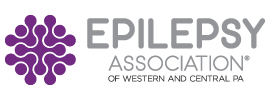
 Donate Now!
Donate Now!
 Donate Now!
Donate Now!

After an official diagnosis of epilepsy is made, finding a doctor that is a good match for you can be a difficult thing. There are many different options for medical providers for patients with epilepsy.
Some primary care physicians (PCP) are comfortable treating epilepsy or seizure disorders. Typically, PCPs do refer patients to specialty doctors for treatment, but if your PCP feels competent and you would like to continue seeing them, that is a possibility. Specialized tests, such as MRIs, PET/CT scans, and EEGs might need to be scheduled at hospitals or other offices, but treatment plans could be discussed at your annual physical.
Two specialists that deal with epilepsy are neurologists and epileptologists. Neurologists are physicians that deal with the nervous system and disorders that affect it, including epilepsy, multiple sclerosis, stroke, and Huntingdon’s disease. Epileptologists, on the other hand, are physicians that are trained to treat epilepsy and seizure disorders. All epileptologists are neurologists, but not all neurologists are epileptologists!
If you are looking for a second opinion, to switch providers, or find your first provider, the most important thing to do is to check and see what physicians or hospitals are considered “in-network” for your health insurance company. This will save you money by not having to pay out-of-pocket for medical care.
To find a provider close to you, visit https://www.naec-epilepsy.org/about-epilepsy-centers/find-an-epilepsy-center/. Here, you can search for medical providers by zip code and find an epilepsy center close to you. You can also contact us for a list of local providers at both the pediatric and adult care level.
Sometimes, a lot can be discussed in a very short appointment. If you’re struggling to remember or understand everything that your doctor discusses with you, you are not alone! Some offices will provide you with a printout of what was discussed and what instructions you are to follow on your own. Other times, patients record the appointment to listen to again later. The EAWCP can also attend appointments with you if necessary to help you understand what is happening during an appointment and what the expectations are for after the appointment.